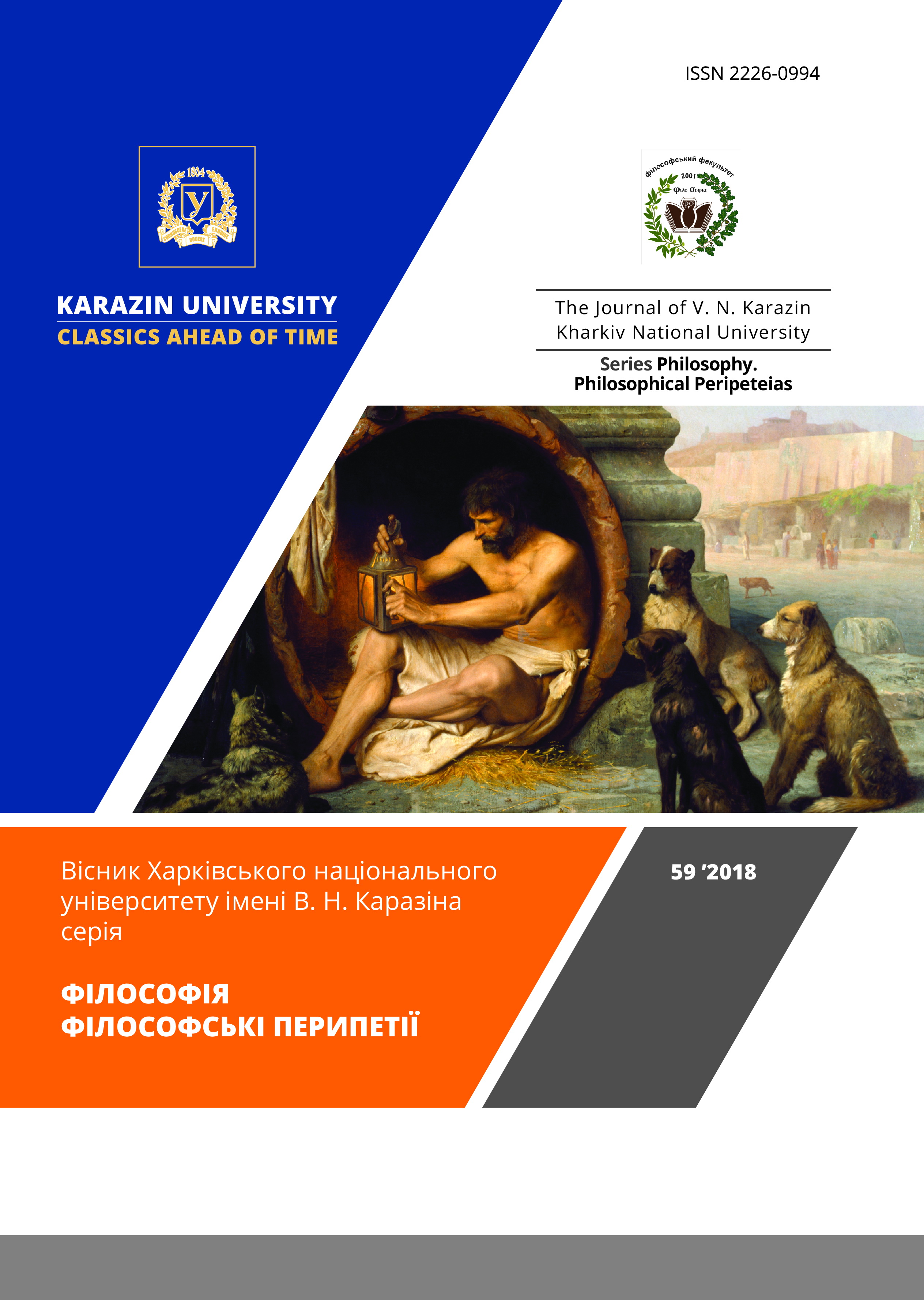SOLUTION OF SOCIAL QUESTION OR INSTITUTIONALIZATION OF FREEDOM? (H. ARENDT ON REVOLUTION)
Abstract
The paper offers a critical reconstruction of Arendt’s concepts of revolution and public freedom. It is shown that, in spite of her self-proclaimed empiricism, Arendt’s approach to understanding politics, including the phenomenon of revolution, is normative. She insists that the main idea of all revolutions is the constitution of a political space of public freedom, and at the same time emphasizes that none of the revolutions has solved this task. Normative premises, on the basis of which Arendt judges the real historical experience, are considered: her interpretations of action, freedom and public sphere. Freedom is understood as the capacity to initiate something new, it is man’s destination and is expressed in action, which is identified with political activity. The action needs a common public space of freedom, which is free from the necessity to satisfy material needs for the maintenance of the biological life process. The distinction between public space and private sphere, which arose in the ancient polis, is a condition of the possibility of politics and freedom: politics is a realm of concern for public affairs, the private sphere is subject to the necessity to meet material needs. This distinction was destroyed in modern era with the advent of the social, when private interest occupied the public political sphere. Analysis of Arendt’s texts leads to the conclusion that she sees the essence of the revolution in the restoration of the original, ancient meaning of politics, which means the establishment of such forms of government that can ensure the political freedom of citizens, their right to participate in political debates and decision making. None of the revolutions solved this problem, because in the minds of both participants and theorists of revolution the “social question” came to the fore, that is, the problem of ensuring collective welfare, which should be solved by administrative methods of management, and not by political means. Representative democracy, established as a result of revolutions, in the end leads to a crisis of democratic legitimacy, since citizens have lost their political freedom to representative bodies. Contemporary experience proves that the condition for overcoming the crisis of democracy is the development of civil society along the lines suggested by Arendt’s concepts of public sphere and political freedom.
Downloads
References
/References
Arendt, H. (2000). Vita Activa or Active Life. (V. Bibikhin, Trans.). Saint Petersburg: Aletheia. (Original work published 1958). (In Russian).
Arendt, H. (2002). Between Past and Future. (V. Chernyak, Trans.). Kyiv: Dukh i Litera. (Original work published 1961). (In Ukrainian)
Arendt, H. (2011). On Revolution. (I. Kosich, Trans.). Moscow: Publishing House “Europe”. (Original work published 1963). (In Russian).
Beck, U. (2001). What is Globalization? (A. Grigoriev, V. Sedelnik, Trans.). Moscow: Progress-Traditsia. (Original work published 1999). (In Russian).
Benhabib, S. (1996). The Reluctant Modernism of Hannah Arendt. Thousand Oaks: Sage Publications.
D’Entréves, M. P. (1994). The Political Philosophy of Hannah Arendt. London: Routledge.
Keane, J. (2001). Democracy and Civil Society. (M. Abramov, Trans.). Moscow: Progress-Traditsia. (Original work published 1988). (In Russian).
Magun, A. (2008). Negative Revolution: Deconstruction of Political Subject. Saint Petersburg: European University Press in Saint Petersburg. (In Russian).
Shell, J. (2006). Introduction to Hannah Arendt’s On Revolution. New York: Penguin Classics.
Tocqueville, A. de. (1992). Democracy in America. (V. Oleinik, E. Orlova, I. Malakhova, I. Ivanyan, B. Vorozhtsov, Trans.). Moscow: Progress. (Original work published 1835). (In Russian).
Wellmer, A. (2000). Arendt on Revolution. In D. Villa (Ed.), The Cambridge Companion to Hannah Arendt (pp. 220–244). Cambridge: Cambridge University Press.
Арендт Х. Vita activa, или о деятельной жизни / пер. с нем. и англ. В. В. Бибихина. Санкт-Петербург: Алетейя, 2000. 437 c.
Арендт Х. Між минулим і майбутнім / пер. з англ. В. Черняк. К.: Дух і Літера, 2002. 321 с.
Арендт Х. О революции / пер. с английского И. Косич. М.: Европа, 2011. 464 с.
Бек У. Что такое глобализация? / пер. с нем. А. Григорьева и В. Седельника. М.: Прогресс-Традиция, 2001. 304 c.
Магун А. В. Отрицательная революция: к деконструкции политического субъекта. Санкт-Петербург: Издательство Европейского университета в Санкт-Петербурге, 2008. 416 с.
Кин Дж. Демократия и гражданское общество / пер. с англ. М. А. Абрамова. Москва: Прогресс-Традиция, 2001. 400 с.
Токвиль А. Де. Демократия в Америке / пер. с франц. В. Т. Олейника, Е. П. Орловой, И. А. Малаховой, И. Э. Иванян, Б. Н. Ворожцова. Москва: Прогресс, 1992. 554 c.
Benhabib S. The Reluctant Modernism of Hannah Arendt. Thousand Oaks: Sage Publications, 1996. 247 c.
D’Entréves M. P. The Political Philosophy of Hannah Arendt. London: Routledge, 1994.
Shell J. Introduction to Hannah Arendt’s On Revolution. New York: Penguin Classics, 2006. pp I–XI.
Wellmer A. Arendt on Revolution. Villa D. (Ed.). The Cambridge Companion to Hannah Arendt. Cambridge: Cambridge University Press, 2000. pp. 220–244.
Authors who publish with this journal agree to the following terms:
- Authors retain copyright and grant the journal right of first publication of this work under the terms of a license Creative Commons Attribution License 4.0 International (CC BY 4.0).
- Authors are able to enter into separate, additional contractual arrangements for the non-exclusive distribution of the journal's published version of the work (e.g., post it to an institutional repository or publish it in a book), with an acknowledgement of its initial publication in this journal.
- Authors are permitted and encouraged to post their work online (e.g., in institutional repositories or on their website) prior to and during the submission process, as it can lead to productive exchanges, as well as earlier and greater citation of published work.






3.gif)




